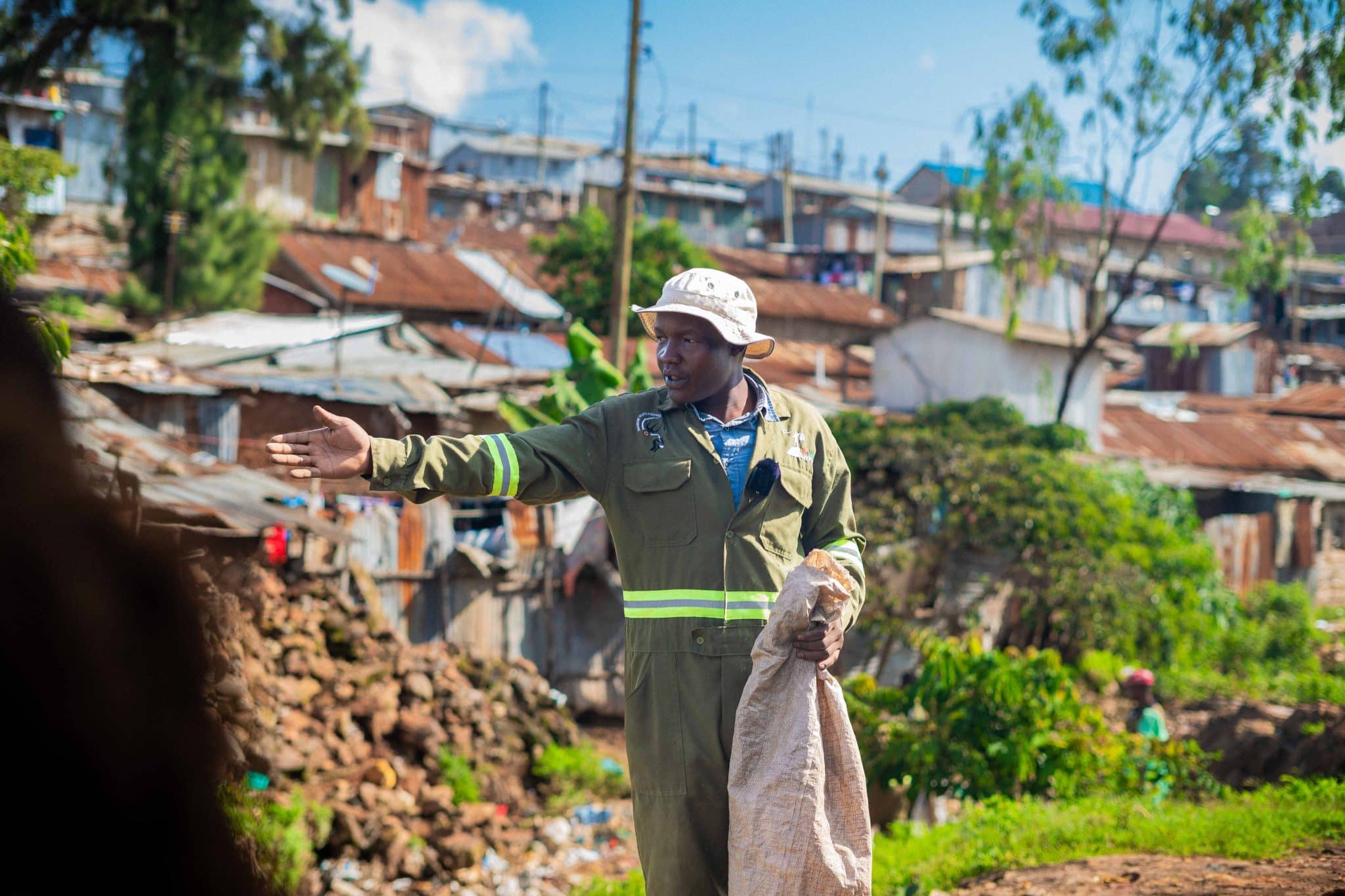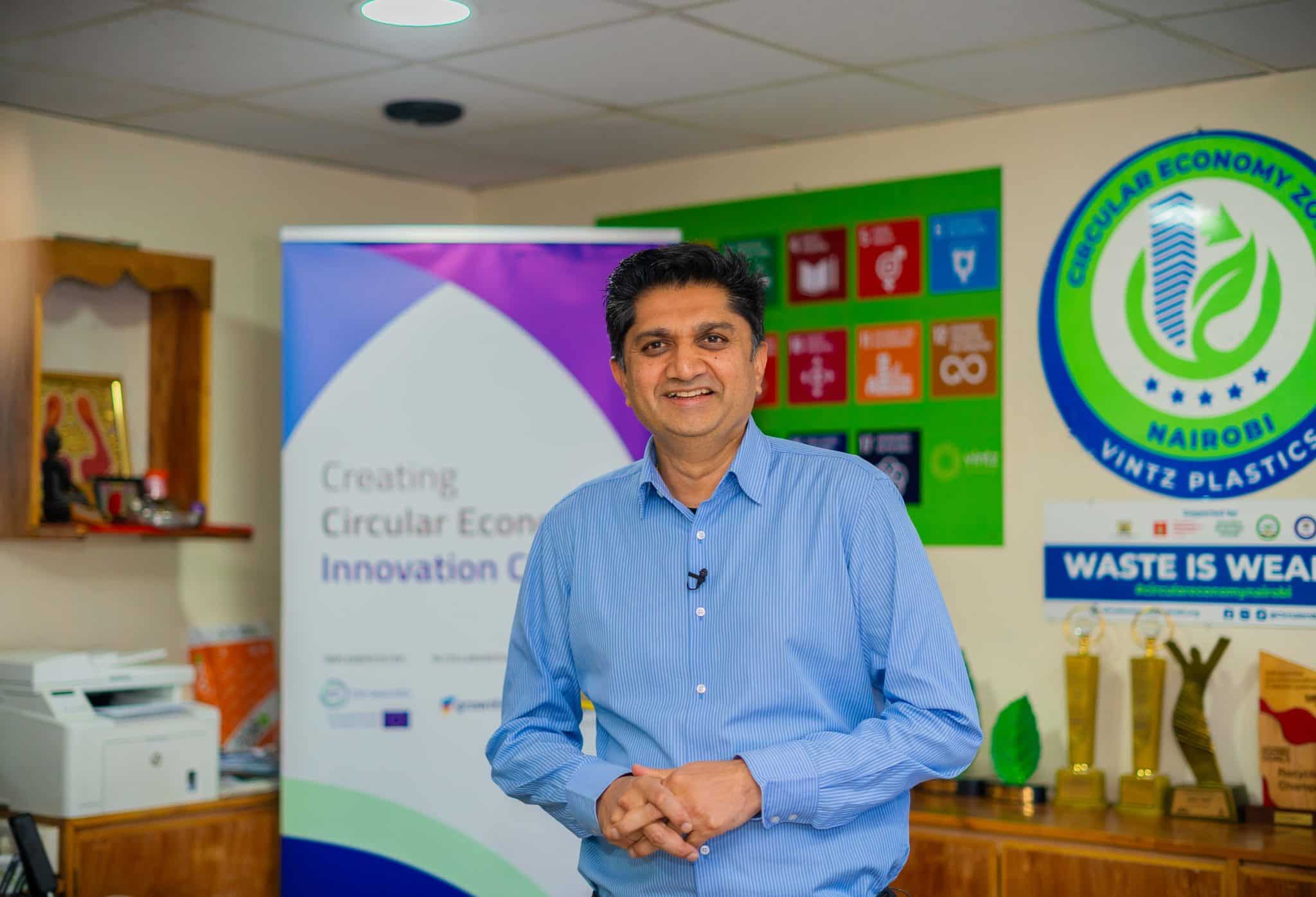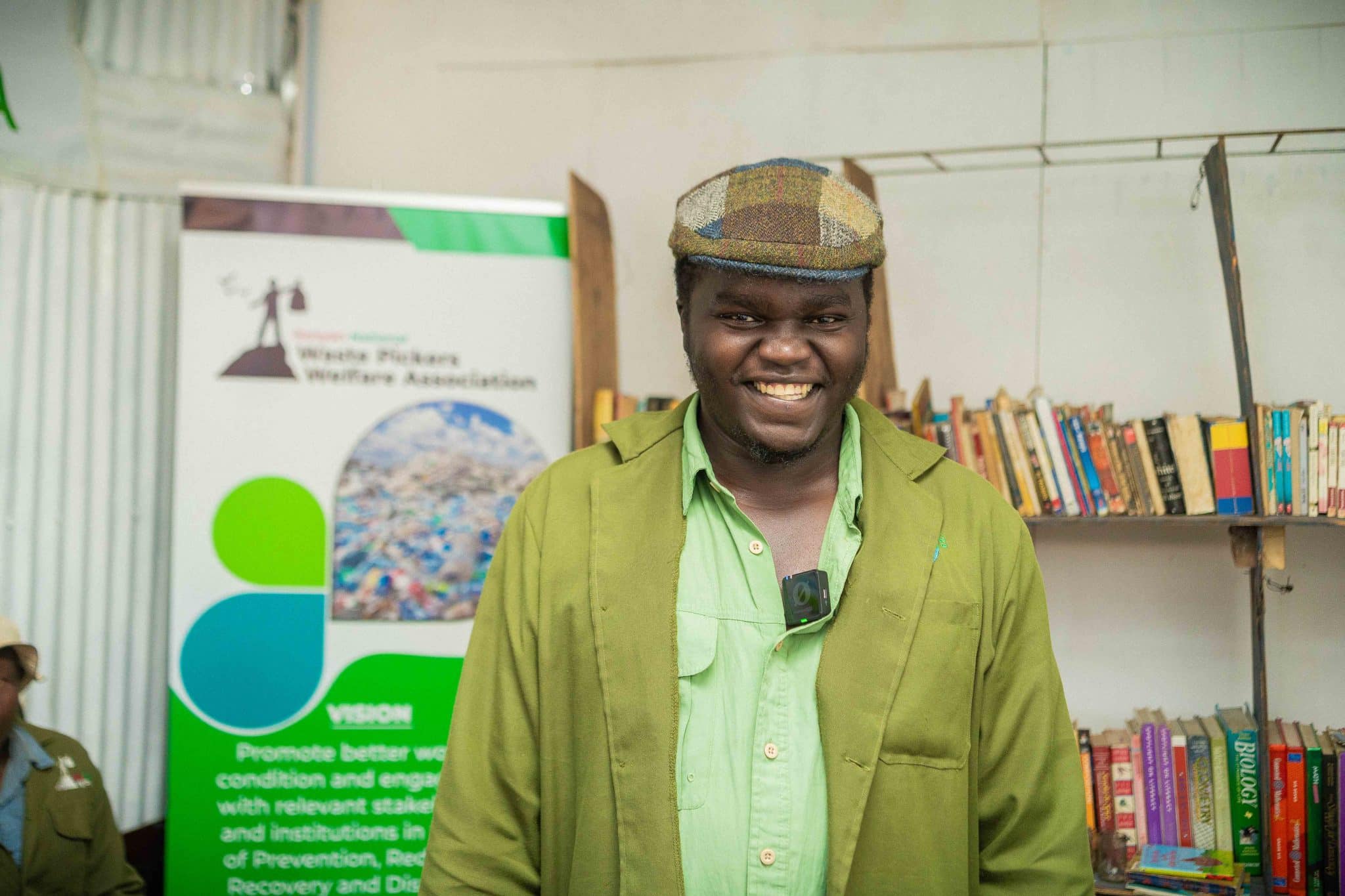A vision for sustainable waste management and prevention in Nairobi
In The News
22 Apr 2024
Plastic pollution, an urgent global crisis, has permeated every corner of the world, with over 90% of plastics produced since 1950 ending up in landfills, incinerated, or leaking into the environment, causing irreversible harm to ecosystems and wildlife. Recent revelations expose the role of oil and gas companies in exacerbating the plastic waste crisis by misleading the public with false recycling promises while ramping up virgin plastic production. In Kenya, where informal waste management prevails, plastic pollution poses grave environmental and health risks for waste workers and nearby communities.
As India’s oldest and largest landfill, Ghazipur in Delhi, went up in flames once again, on the eve of Earth Day 2024, significantly impacting the health of the local population, it is now more crucial than ever to draw attention to this global issue and emphasise the importance of working on solutions that involve all stakeholders, including the local population and informal waste workers who spend their days, and sometimes even nights, on the landfills.
A holistic solution to waste management
Nairobi, home to numerous largely unregulated landfills including East Africa’s largest, Dandora, grapples with mounting waste, generating around 3,207 tonnes per day, with only a fraction recycled. In response, a diverse coalition comprising government bodies, businesses, NGOs, and waste workers, spearheads the Circular Economy Innovation Cluster, a programme by EIT Climate-KIC in partnership with GrowthAfrica and funded by the IKEA Foundation.

In an interview with EIT Climate-KIC, Mavji Varsani, CEO of Vintz Plastics, a plastics recycling company that is part of the Circular Economy Innovation Cluster network said, “The main challenges for Kenya’s waste management sector are related to policies not being implemented. Education is critical. The sector needs to be aware of how to manage and dispose of waste correctly for environmental safety. We need to find ways to innovate and give value to waste, turning it into a resource. This shift in mindset can benefit the entire sector.”
Acknowledging the limitations of relying solely on recycling, the cluster adopts a holistic strategy, engaging local stakeholders to map challenges and incubating circular ideas, especially targeting upstream innovations and marginalised groups like informal waste workers. The focus lies not only on recycling but also on waste prevention, guided by core circular principles, thus initiating a transformative shift in Nairobi’s approach to waste management.

Mavji Varsani, CEO of Vintz Plastics
Key insights from a baseline study conducted by Wasafiri Consulting highlight the necessity of upstream circular solutions, integration of informal workers into waste management initiatives, and the need for diverse platforms to foster collaboration. The programme will also facilitate knowledge exchange and co-learning events to bridge silos and accelerate the transition to circularity.
The Circular Economy Innovation Cluster in Nairobi is aimed to serve as a hub for collaboration, ideation, and incubation of circular business models that can contribute to reducing and preventing waste and promoting resource efficiency. Through targeted support and mentorship, GrowthAfrica will support entrepreneurs to develop and scale innovative solutions that address the root causes of waste and pollution in the city, especially in bio-waste, agricultural waste, and solid waste (plastics, paper, metal, glass,etc). They will also work to enhance the working conditions of informal waste workers, particularly women, who are often marginalised in the waste management sector.

Gisore Nyabuti, Secretary General, from the Kenya National Waste Pickers Welfare Association
Gisore Nyabuti, the Secretary General of the Kenya National Waste Pickers Welfare Association, also part of the Circular Economy Innovation Cluster explains: “The main objective of the association is to ensure the waste-pickers welfare. We want them to have a dignified life. We needed something to unify them, to provide them with a collective voice because there are numerous health risks associated with waste picking. Some landfill waste-pickers resort to burning plastic to keep warm as they sleep in the landfill. So, what we do is we establish companies, intending for them to have shares to continue receiving dividends when they are unable to work in the landfill due to age. We strive for their involvement in every aspect of the waste management value chain. Currently, we are seeking partners for a five-year collaboration to establish centres and systems. After this period, we anticipate the waste pickers will start benefiting from the organisation.”
This year’s global environmental campaign, Earth Day, demands a 60% reduction in the production of plastics by 2040. In the face of the escalating plastic pollution crisis, EIT Climate-KIC’s efforts in Nairobi exemplify the power of systemic change and collective action. By incubating and accelerating circular innovations, building capacity, fostering partnerships, and showcasing best practices, we are supporting a long-lasting change transformation in waste management and prevention practices in Nairobi.
Visit EIT Climate-KIC Circular economy Innovation Cluster page for more information
Photos by Fine Focus Productions.




